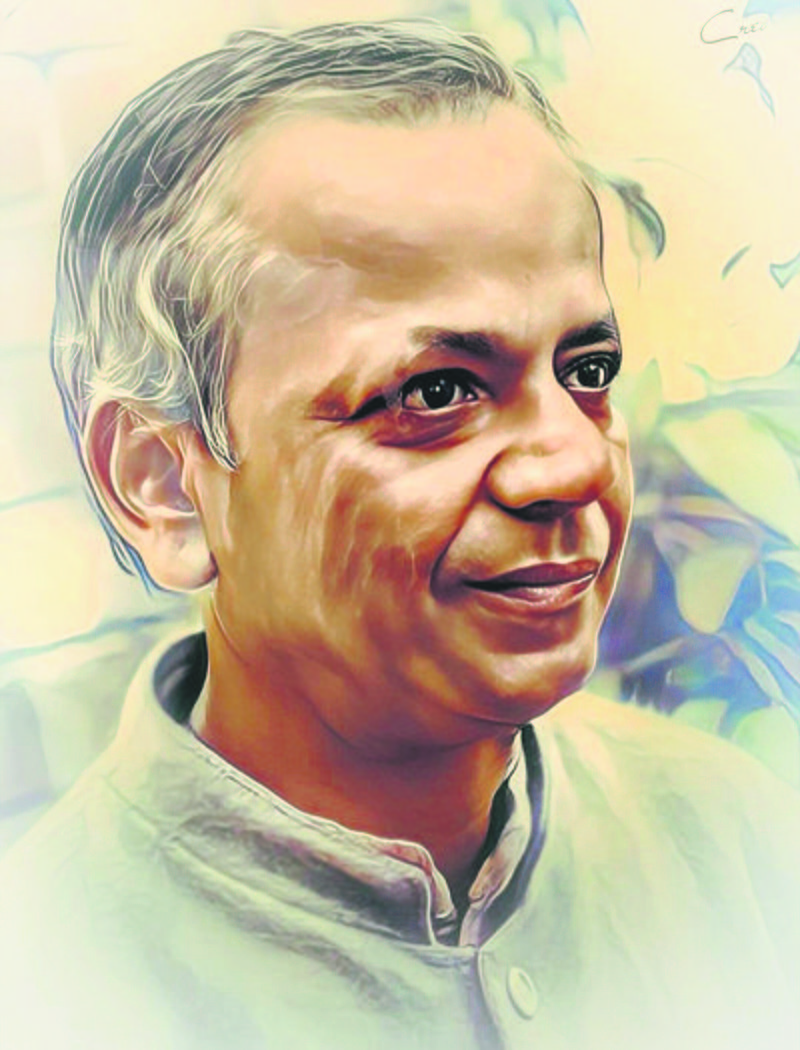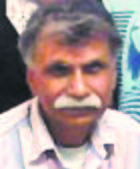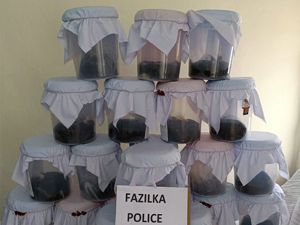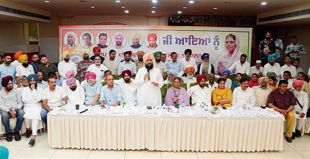
Satyapal Sehgal
What a treasure house it was, the Department of Hindi, Centre for Indian Languages, Jawaharlal Nehru University. Namvar Singh taught along with Manager Pandey, side by side with celebrated Hindi poet Kedar Nath Singh and the best Hindi researcher at the moment, Veer Bharat Talwar! Both Namvar Singh and Manager Pandey had left leanings, but the difference in shades was quite prominent. It also sneaked out in their demeanour. Namvar was senior and a tall figure, but Manager Pandey succeeded in creating a niche for himself in the annals of Hindi criticism despite Namvar’s presence. Along with Namvar Singh and Ashok Vajpeyi, he became the most influential Hindi critic of our times. Like Namvar, his popularity rested upon his witty and idiomatic oratory, tinged with a Bihari slang and accent. He was sharp as a literary analyst and could choose his facts well, rooted in the sociology of the current age. It is no coincidence that he wrote a sort of a textbook of sociology of literature, titled ‘Sahitya ke Samajshastra ki Bhoomika’ (An Introduction to the Sociology of Literature), the most exhaustive book on the subject in Hindi till date.
Manager Pandey was a commoner, lived a simple life, was easily accessible. His authority over Hindi literature stemmed more from his scholarship, the domains he searched, his razor-sharp intellect, eloquence par excellence and theoretical transparency. His was never a father-like persona. He never looked like one, walked like one. He was a kind friend who understood the issues of poverty, struggles of livelihood, delinquency, anarchism & deferred revolutions
His basic inclination was to read literature as a social document. Even the formalistic aspects of a literary creation are read as social content. He excelled over his contemporaries in this regard. He was more insightful and apt in his expression, easy to understand, earthy, less diplomatic and more truthful, targeting a relatively younger audience. If he was of the left, then he represented the new left in Hindi criticism. There was freshness in his approach towards the literary text. He looked for more affirmative ideological positions, so his favourite sarcastic phrase was ‘Duvidha ki suvidha’ or the advantage of being in a dilemma. Perhaps he echoed Avtar Singh Pash, who said: “There is no middle path.”
This was the emotional backdrop because of which he was not known for his proximity to or control over power centres in academic, literary, social or political spheres. For that matter, he was a commoner, lived a simple life, was easily accessible, and was quite insecure, too, at times. His authority over Hindi literature stemmed more from his scholarship, the domains he searched, his razor-sharp intellect, eloquence par excellence and theoretical transparency. He was not an activist-writer but activists sought him out for literary refuge, counselling and to relate to this short-statured, thin man. His was never a father-like persona. He never looked like one. He never walked like one. He was a kind friend who understood the issues of poverty, struggles of livelihood, delinquency, anarchism and deferred revolutions.
His affection for Chandigarh and Punjab and in return the respect of the listening community he got here was evident. He was invited to Hindi as well as Punjabi events with equal zest. All his lectures were delivered to packed houses. He was well acquainted with the present literary map of Punjab. He recorded a talk on Lal Singh Dil for All India Radio. The eminent Hindi critic, Ashok Vajpeyi, commented rightly as he pointed out that Manager Pandey was not happy with all the big Hindi poets, except Agyeya, for not writing even a single line on the catastrophic tragedy of Partition. He wrote a lengthy preface to the collected poetry of nationally acclaimed, local Hindi poet Kumar Vikal. He was a great admirer of well-known political scientist Randhir Singh and helped get his Punjabi poetry translated into Hindi.
He always appeared irrepressible, without taking a rest. Only death could silence him. Of course, his creations, around two dozen or so books, would keep talking for long. Maybe even louder than now. His contribution to the Hindi scene is yet to be properly assessed and assembled. Here was a man who grasped the medieval and modern spirit equally.
Poetry was closer to his heart. ‘Kavita maanavta ki maatribhasha hai’ (Poetry is the mother tongue of humanity) was one of his favourite lines. He started his career as a critic on Bhakti Movement poetry. Another beloved line of his was that ‘you cannot be truly global unless you are truly local’. You have this book titled ‘Siwan ki Kavita’ by him. This was surely a humble act on his part towards his roots as Siwan is a small town of Bihar.
Enough attention has not been given to his quality research work. He wrote a long, illuminating introduction to the Hindi translation of Sakharam Deuskar’s book ‘Desher Katha’, originally written in Bengali. He also edited the book, first published in 1910. It is an extraordinary compilation of data of the economic, political and cultural loot of India by the British. Few books in Hindi from that time would do the educative act done by this book alone. It is a classical work on imperialism available in Hindi, on the ways and the mindset of colonialism. It is written in a very lucid manner and is highly readable.
His books on the great revolt of 1857 and the Mughal period of India should also be gone through. ‘Mughal Baadshahon ki Hindi Kavita’ (Hindi Poetry of Mughal Emperors) and ‘Hindi Lokgeeton aur Geeton Mein 1857’ (1857 in Hindi songs and folk songs) are remarkable efforts.
Hindi scholars like Ramvilas Sharma harped on the supposed Hindi Renaissance spanning over around 75 years, beginning roughly after 1857. The Centre for Indian Languages at JNU, including teachers and research scholars, did a lot of research in this field. Manager Pandey was no exception. In a way, his critical works become a part as well as a critique of that era. In Hindi, endeavours have been made to recreate the essence of the Renaissance. Manager Pandey’s critical and research studies should be seen as such. Therein lies the key to define his eminence and wider acceptance across the length and breadth of India. He would be remembered for being a Renaissance man.
He and Namvar Singh used the rhetorical quality of Hindi language to convey a message which is deeply political and catalytic. Manager Pandey would learn from the reading material in English, but he was able to make it alive, throbbing and interesting, with a unique touch of the daily hustle and bustle of North India. He should also be evaluated from this point of view.
— The writer is former head of Hindi Department at PU, Chandigarh
Join Whatsapp Channel of The Tribune for latest updates.




























